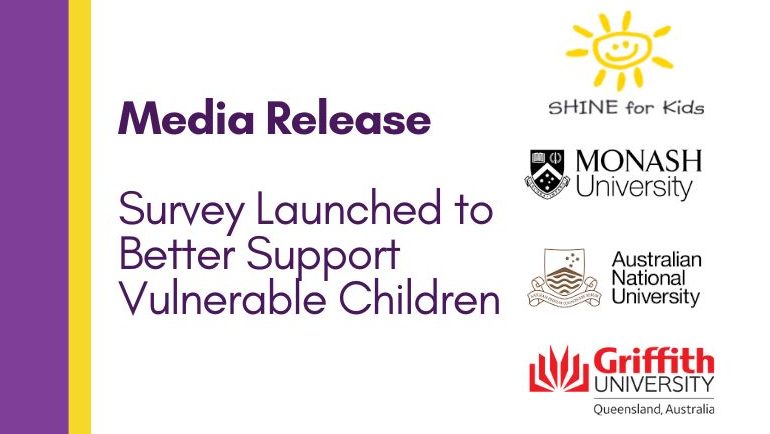
June Appeal: Donate today and help change lives
We support thousands of children experiencing stigma and disadvantage, but many more need our help. Over 40,000 children in Australia are at this moment facing the unique challenge of having a […]
Media Release – 2nd November 2022
Released into the field today, the survey has been developed by Monash University in conjunction with Griffith University and Australian National University and supported by SHINE for Kids.
SHINE for Kids, the national charity supporting children and young people whose parents are in prison, said the national survey will play a crucial role in developing a broad snapshot of children and families and understanding the gaps in support for these children.
“When a parent goes to prison, there are no formal support networks in place to ensure their child is properly cared for,” SHINE for Kids CEO, Julie Hourigan Ruse said.
“It often falls to family members to pick up these responsibilities, and if that is not possible, the child is placed in care.
“This is a traumatic experience, and sadly we have very little empirical evidence that details the impact on these children.
“This survey seeks to understand precisely how children with a parent in prison are coping with the situation.”
The survey will be in the field for six weeks, and Ms Hourigan Ruse encourages anyone that is caring for a child whose parents are in prison, to get involved.
The survey findings will be finalised in early 2023.
SHINE for Kids will assess the findings and present a report to the Government with a number of recommendations.
For more information, and to access the survey, visit shineforkids.org.au
Media contact: Billy Briggs | 0474 697 235


We support thousands of children experiencing stigma and disadvantage, but many more need our help. Over 40,000 children in Australia are at this moment facing the unique challenge of having a […]

Our Townsville team attended a great workshop by SNAICC – National Voice for our Children, Project Waterways, featuring two days of informative sessions focused on cultural responsiveness and trauma-informed practice. The […]
This survey seeks to understand precisely how children with a parent in prison are coping with the situation.